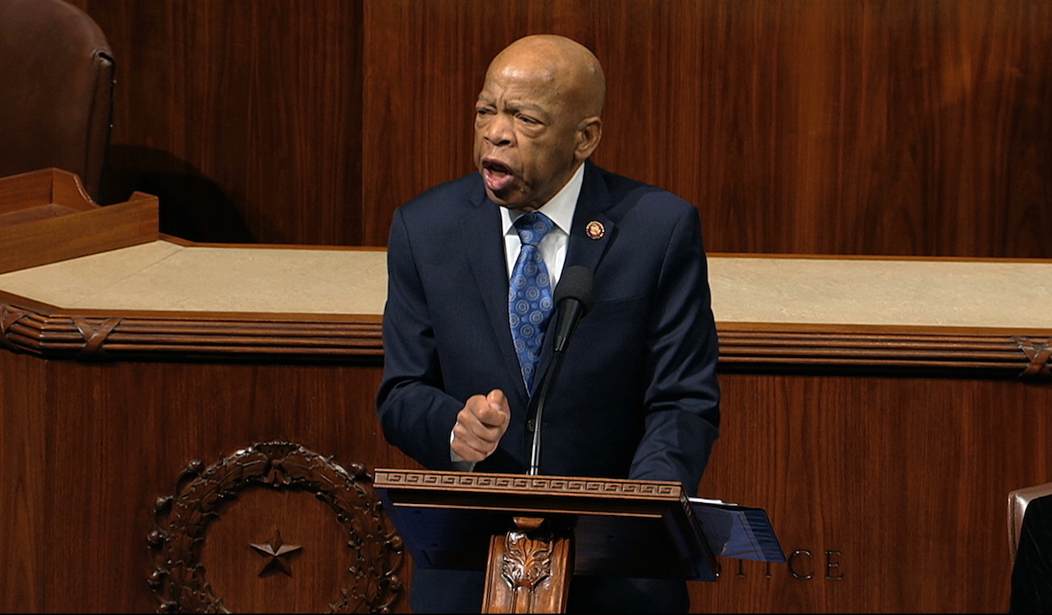John Lewis, a leader of the March on Washington in 1963, the founder of the Student Non-Violent Coordinating Committee, and a man who continually put his life on the line for his belief in freedom for all Americans, is dead at the age of 80.
In addition to his work as a civil rights activist, Lewis spent 30 years in Washington as a congressman where he was known for being the “conscience” of the House. Whatever they called him, he had earned. This is a man who, as much as any combat soldier, endured dangers and unspeakable horrors to help win rights denied to black people in many southern states.
He was beaten, shot at, threatened, firebombed and still he kept coming. His enemies couldn’t intimidate him. And he eventually beat them.
As a young man, he led the Student Non-Violent Coordinating Committee and participated in the famous “Freedom Rides” where groups of young kids — mostly northern whites and southern blacks — would ride buses across the South, registering blacks to vote and organize. It was an earnest, idealistic effort that drove the Kennedy administration crazy. But it was an effective tactic as the young people were continually set upon by thugs.
Lewis, for all his zeal, began to become radicalized when it became clear that Martin Luther King’s non-violence was producing limited results. He wanted a revolution, although what kind of revolution he was seeking will be debated by historians. In 1965, he marched in Selma where, on the Edmund Pettis Bridge, southern authorities attacked peaceful marchers in full view of the nation and the world. It proved to be a turning point in the struggle and something of a personal turning point for Lewis.
The movement became progressively more radicalized as progress in civil rights was too slow for many of the younger generation. Eventually, Lewis lost the chairmanship of the SNCC because he wasn’t radical enough. He went on to campaign for Robert Kennedy in 1968, only to see that effort end in tragedy. He got involved in voting rights in the 1970s but was looking to run for Congress. He lost his first try but was successful in the second.
After a stint on Atlanta’s City Council, he tried again for the House in 1986 and won, edging out fellow activist Julian Bond. He remained in the House after that, an ardent Democratic partisan but one who said that his mission never changed.
“My overarching duty,” Lewis wrote in 1998, “as I declared during that 1986 campaign and during every campaign since then, has been to uphold and apply to our entire society the principles which formed the foundation of the movement to which I have devoted my entire life.”
He was not a very effective congressman. His signature achievement will be remembered as his advocacy for an African-American Museum that was finally approved in 2003. But it was his presence on the floor as a living symbol of the early struggles for black equality that will be his lasting legacy.
To my mind, he tarnished that image in the last decade of his life by becoming rabidly partisan. He called for the impeachment of George Bush and Donald Trump. He created numerous enemies on the right. His calls for radical social and economic change were rejected, even by most in his own party.
But if a man be judged by the totality of his life, John Lewis was a hero. To know the danger to life and limb and to embrace it, challenge it, even encourage it should stand out in any remembrance of Lewis. Few had that raw courage to endure. And while he may have been a radical, he never advocated violence. That, too, sets him apart from the anarchists and barbarians of today.










Join the conversation as a VIP Member